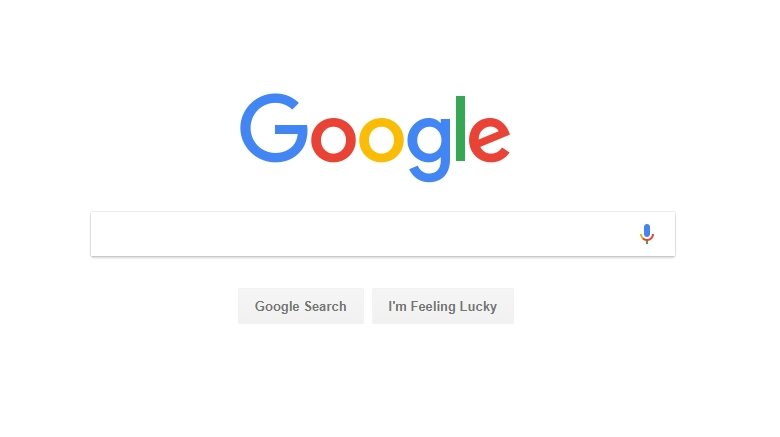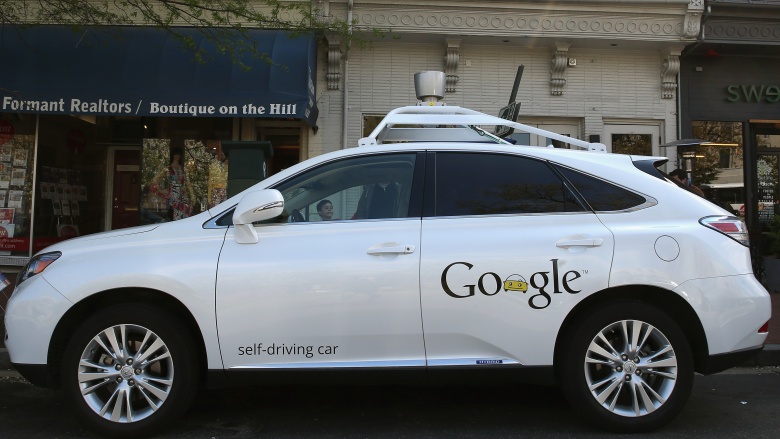Secrets Google Doesn't Want You To Know
Google has become so big that, for the most part, it does what it wants and doesn't care who knows it. Still, Google has a few bad habits that it would rather keep under wraps. Let's look at some of them now!
Google does what it wants with other companies' data
In 2012, it was alleged that Google employees siphoned sales leads from a protected database owned by a Kenyan company called Mocality, to which they shouldn't have had access. They then tapped competitors' phones and used the contraband information to make offers to competitors' clients. After the scandal broke, Google apologized and fired the employees involved.
They don't usually respond that way. Often, Google claims altruistic reasons for the liberties it takes with other companies' data. For instance, its employees once broke into Apple's Safari app using ad software, and then blamed Apple for not preventing them from breaking in. Decrying the poor security of its competitor as a danger to the industry, Google threatened to publish the faulty code if Apple didn't fix it ASAP. That's like getting robbed and finding a note from the burglar that says, "You have ninety days to get pick-resistant locks and a better alarm system, or else we'll tell the world exactly how we got in."
Naturally, this didn't go over well and Google ended up paying out a more-or-less symbolic $5.5 million to legal fees and privacy groups — but not to the consumers whose privacy was breached. They're not important, apparently.
Their driverless car project is already re-shaping government policy
Google has set out to invent a market and an industry for self-driving cars. Public documents reveal Google's "cozy" relationship with the policymakers who will define the rules of the self-driving automotive industry. Basically, Google — the premiere self-driving car manufacturer — will help to determine the extent of the government's control over the self-driving car industry. Conflict of interest? What conflict of interest?
What's the problem with industry leaders influencing policy-writing, you ask? Isn't it typical of American industry leaders to influence the regulations of their industries? Yes, and now more than ever. Unfortunately, it is this established tendency of insiders to pre-write "sponsored" legislation for lazy lawmakers, that leads to the sort of conflicts of interest that can ruin brands and topple entire companies. If Google actually believed in the values it espouses, it would be working to break this troubling trend, instead of perpetuating it.
Street view and Google Earth are way sketchy
At long last, the entire world's geography is at our fingertips. With Google Street View and Google Earth, we can experience all the magnificent cities, spectacular vistas, and creepy dark alleys of modern human civilization, right from the comfort of our PCs and tablets. For teachers, they're tools. For travelers, they're conveniences. Finally, for people with travel-affecting physical disabilities, these services provide the freedom to explore our planet at will, a freedom they might not otherwise have. That's seriously awesome.
At the same time, these services give privacy advocates the creeps–and not without good reason. When Street View isn't revealing the layouts of top-secret military bases or showing off what your personal home address looks like to potential buyers and/or burglars, it's racking up fines for allegedly collecting account names (and passwords!) from our private wifi data.
You know those Google cars you might have seen driving around? According to a lawsuit (which Google has lost and cannot appeal), those cars aren't merely motorized peepers and GPS data collectors, but firewall-violating data-mining mobiles, too. So much for secure browsing ...
Alleged racial profiling and discriminatory hiring practices
Google's ads services have checkered pasts, as well. There have been multiple allegations of racial profiling, preferential treatment, and other unsavory practices in regard to AdWords and AdSense.
Have you ever Googled a name and been met with an ad for an "arrest record for [that name you just googled]?" One study of AdSense found "statistically significant discrimination in [arrest record-related] ad delivery based on searches of 2,184 racially associated personal names across two websites." If you google your name — just your name — you are more likely to see ads for arrest records services, bail bonds services, legal advice, and criminal defense attorneys, if your name doesn't "sound white."
The problem extends beyond misbehavior among ad algorithms. Hidden biases in Google's hiring practices have been well-documented, such as a preference for candidates to be under forty that resulted in a class action lawsuit. The company lost that suit. Google: an equal opportunity employer for people under forty, candidates with high tolerance for racial profiling preferred.
Lady Day, and other half-measures towards equality
A (comparatively) great company for women, racial/ethnic minorities, and LGBTQ Silicon Valley employees, Google prides itself on inclusivity and equality. Even so, the company's efforts to reach out to women haven't always been successful.
Consider Google's Lady Day, announced in June of 2016. In response to a shareholder's sexist faux pas at the 2015 Annual Shareholders' Dinner (he referred to the company's CFO as "the lady CFO"), Google employees of all genders opted to add the modifier "Lady" to their titles. A glowing write-up in Fortune declares, "The Google community has totally embraced the idea. Now, more than 800 Google employees — both men and women — have changed their titles in the company-wide directory or in their email signatures." That's wonderful except, when Lady Day was announced, Google had over 60,000 employees on payroll, all with titles in the company directory and, presumably, email bylines, too. This was little more than a light-hearted protest of a serious problem in the tech industry: widespread misogyny and male chauvinism.
In terms of progress, Lady Day is certainly better than nothing, but it's by no means revolutionary. For Lady Day to be meaningful, the existing systemic framework must be re-evaluated and modified accordingly. Without systemic changes, Lady Day simply reinforces a false gender dichotomy and actively ignores non-conforming and genderqueer identities in the tech industry.
Google has your data, doesn't need to spy on you, but does anyway
Google never forgets. In 2015, Nate Silver's FiveThirtyEight site explored Google's perfect memory in the context of an ongoing debate over "the right to be forgotten" — the idea that search engines should allow people to opt out of query results. At the time, a petition signed by 280,000 people was gaining popularity and, much to FiveThirtyEight's surprise, the majority of requests to have their internet histories scrubbed after they die were coming from ordinary people, not politicians or convicted criminals.
Idealism at its most obstinate, "the right to be forgotten" presents logistical problems for implementation, as it highlights an uncomfortable truth about the unparalleled access that Google has. Those ever-growing piles of dirt it has on just about all of us are permanent. It's a good thing that Google would never cooperate with a foreign or domestic campaign of repression just because there was money to be made.
Except all those times they have, of course. Remember that big kerfuffle with that delightful Edward Snowden fellow? In 2013, The Guardian published Snowden's revelations about how Google –and virtually everybody else in Silicon Valley–had cooperated, to a certain extent, with the NSA's PRISM domestic espionage program. To make matters worse, Google's uneasy partnership with the Chinese government has resulted in Google China removing any mention of the 1989 Tiananmen Square massacre. Whatever happened to the free exchange of ideas?
Google loves Net Neutrality, doesn't uphold its principles
To understand Google's complex connection to net neutrality, we must begin with the "series of tubes" meme. It originated in 2006, when then-Senator Ted Stevens described the internet as "not a big truck [but rather] a series of tubes." It was, perhaps, a poor choice of words. For proponents of net neutrality — the idea that Internet Service Providers shouldn't be allowed to interfere with site traffic — it was a moment of accidental transparency and a wake-up call, as if to say, "This is the ignorance we're up against."
Senator Stevens wanted to let ISPs charge sites like Google for bandwidth use, to prevent the tubes from getting clogged with data. (It's not supposed to make sense. It's only supposed to be made law and enforced by people who don't understand networking.) Naturally, Google became a vocal defender of net neutrality — until it got into the ISP game with Google Fiber. Users who tried to set up servers in their homes would be in violation of its TOS, which was modeled on the industry standard it used to oppose.
In recent years, perhaps on account of its changing interests, Google and a few other tech behemoths have avoided discussing the issue altogether. That's a very untubular way to do business.
Google isn't a flat organization, no matter what it insists
Although you'd never know it by looking at his company's actual practices, Amazon CEO Jeff Bezos believes that the most effective teams should be small enough to feed with two pizzas. Google has claimed to subscribe to the theory, too — in the very beginning, it seems that Brin and Page's company practiced what they preached. At present, though, Google is just too big and cumbersome to comply with Bezos' Two-Pizza rule. Even if it was two of those humongous, table-sized pizzas you get for free if you can eat it all in one sitting.
Google is a massive corporation that pretends to still be the fun, burgeoning startup it once was. In their book How Google Works, execs Eric Schmidt and Jonathan Rosenberg dub it a flat organization made up of small, specialized teams. Technically, it's not actually flat. Yes, in 2002, Larry Page and Sergey Brin wanted to abolish managers, and so they did for a few months. But then, Page got fed up with the questions and the chaos. With no middle managers, Google employees went to him anytime they had an issue — with anything. Quibble with a coworker? Better talk to Page. Need help with that expense report? No working pens? Get the boss of the entire company on the horn.
It got to be too much, so the bosses quietly brought back hierarchy while maintaining the same "flat organization" brand, a longtime symbol of the company's one-time commitment to doing things differently. Except, as the company diversifies its investments and acquires more of its competitors, the organizational flatness on which it prides itself is disappearing, and fast.
It's too big for its own good ... and ours
Google's employees-only meme database, designed to give workers a way of blowing off steam, isn't just a great place to find scathing memes about the company's controversial acquisition of Nest. It's also packed with memes about how cool working there used to be. The game-changing, rebellious startup has become the Establishment.
At its present size, Google cannot be kept in check by government oversight. Its irreducible complexity presents a logistical nightmare for industry regulators. The people upon whom we rely to levy the appropriate warnings, penalties, and fines to ensure that Google, and companies like it, operate within the confines of the law lack the resources to do the job. Threats don't mean anything if you can't back it up.
Its full scope is literally unimaginable
There are aspects of Google, both good and bad, that this article hasn't covered because the company is simply too big, and too complicated to comprehend. That's not a copout — it's science. Evolution hasn't prepared us to reckon with something as massive as Google. Faced with uncommonly large quantities, our sense of scale breaks down, and our estimations become wildly inaccurate.
Sure, we can represent Google's $82.5 billion empire with digits, charts, and language. We can list its holdings, track the cash-flow, and catalog its projects; but how it actually works, and how far it can ultimately reach, is beyond our mere mortal comprehension. Ironically, we likely can never know How Google Works, and Google likes it that way.










